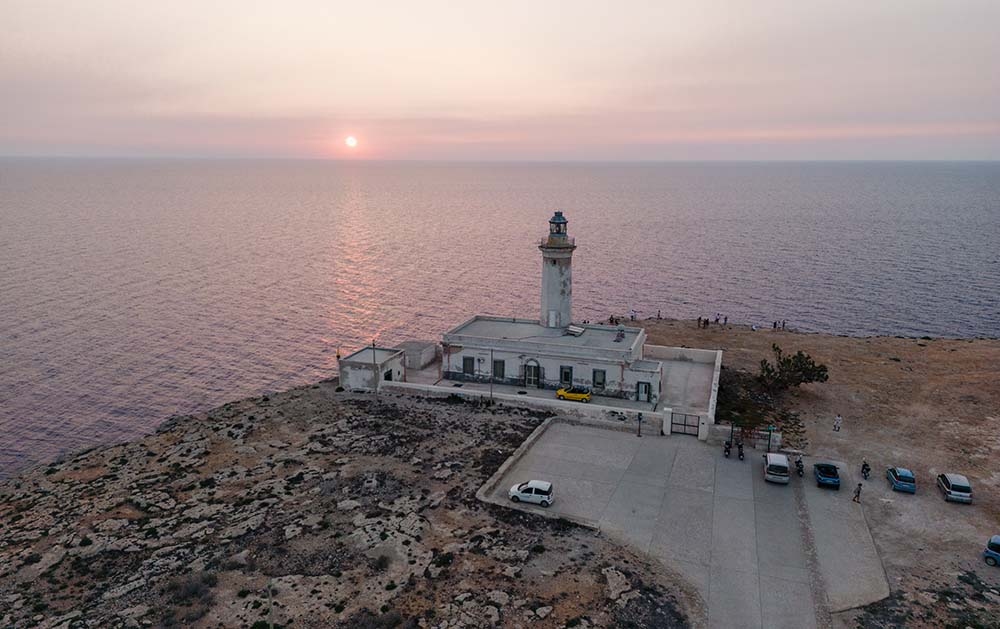
Lampedusa, a tiny Italian island in the heart of the Mediterranean, is best known as a first stop for refugees fleeing North Africa. Beneath its turbulent reputation, the rugged island carved by wind and waves, is also a critical node in the ICOS greenhouse gas monitoring network.
Sitting at the cape of a dramatic cliff under a gazing sun, the Lampedusa Observatory is overlooking eternal azur blue sea in all directions. Thanks to its location, far from major pollution sources and urban centres, it provides an exceptional opportunity for greenhouse gas emission monitoring.
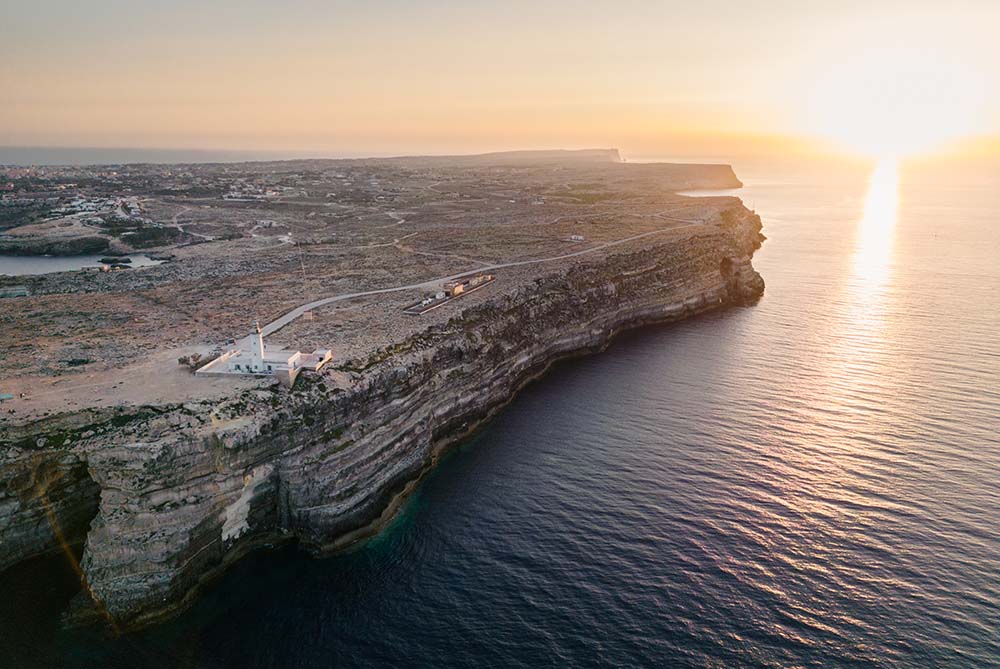
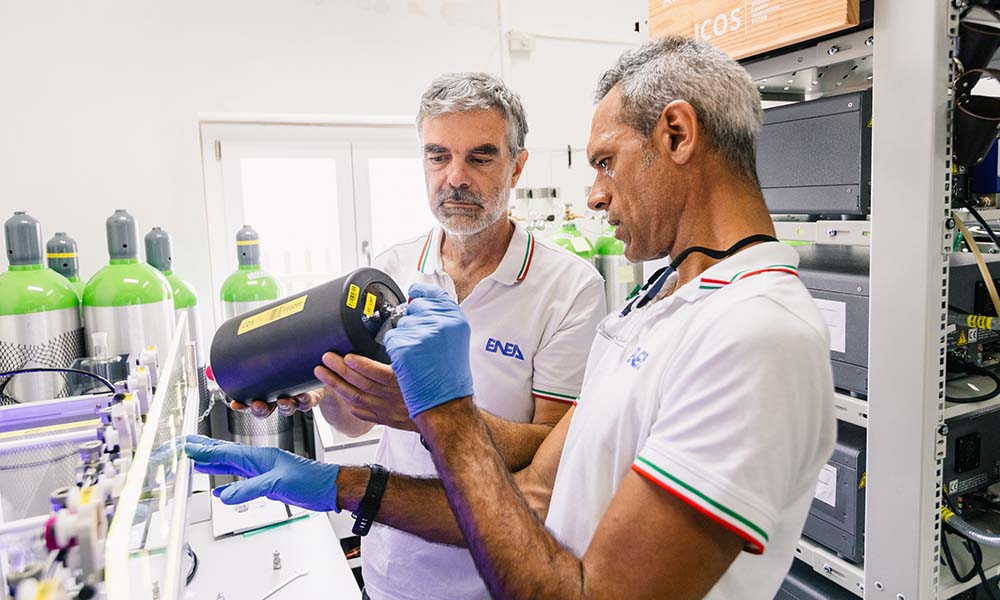
“The Lampedusa observatory is unique because it includes an atmospheric station, a marine station and an ecosystem station. It therefore allows us to study the natural carbon cycle in all its components while quantifying the impact of human activities on a large scale,” explains Giorgio Alcide di Sarra, ENEA Research Director and Principal Investigator at the Lampedusa Observatory.
The island's isolation and exposure to diverse atmospheric and oceanic influences makes it an ideal location to monitor changes in greenhouse gas concentrations, air quality, and ocean acidity. By comparing data from Lampedusa with other global monitoring stations, scientists can identify long-term trends and assess the effectiveness of climate mitigation policies.
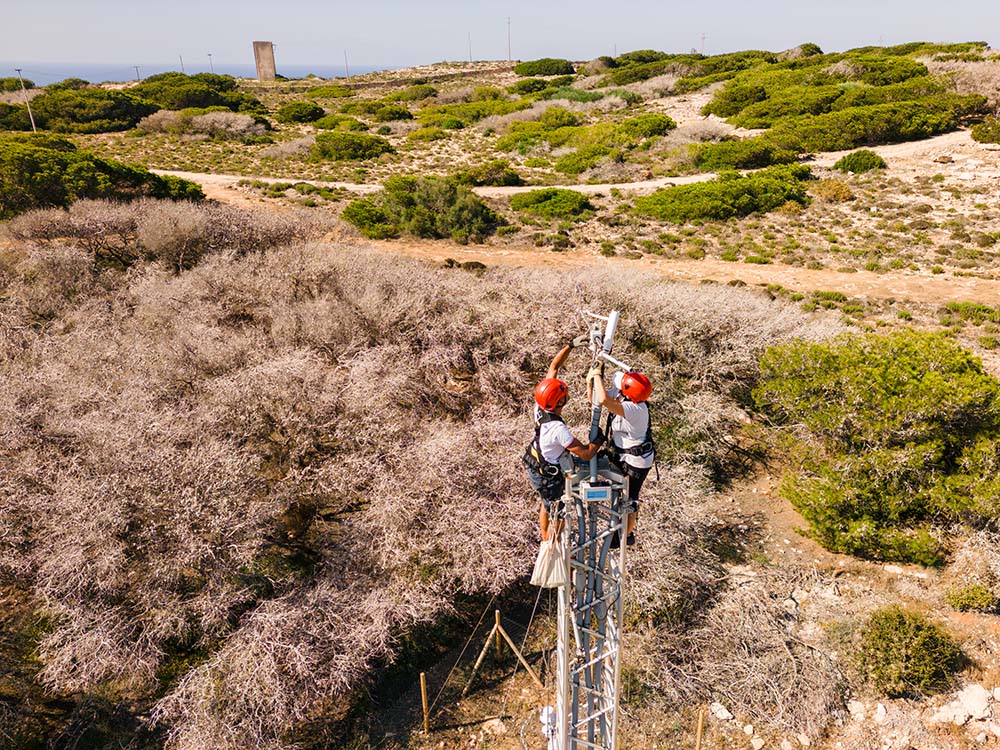
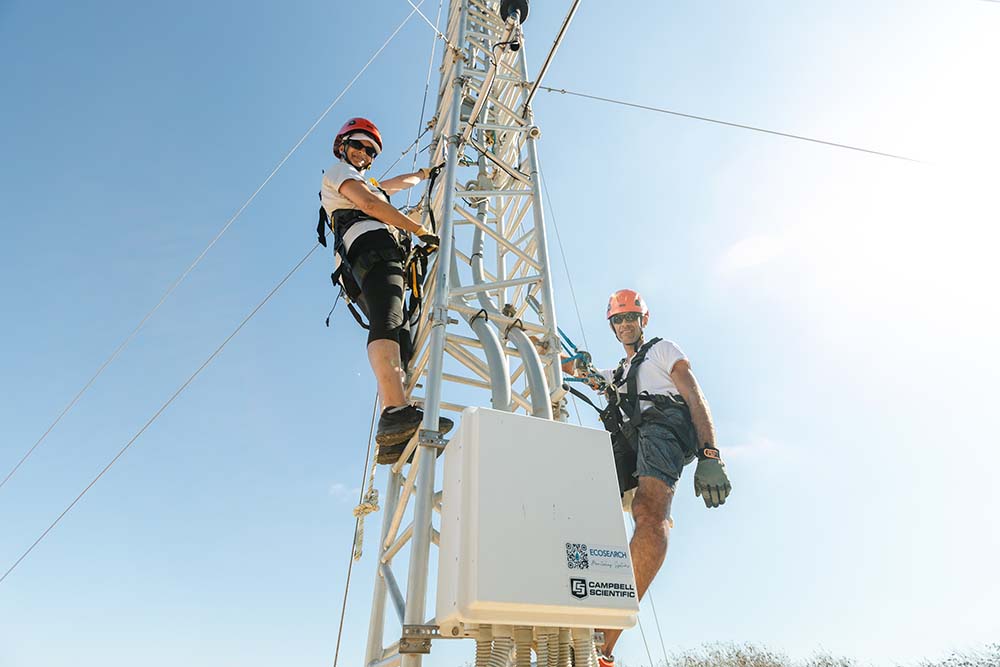
However, conducting research on Lampedusa is not without its challenges. The island’s harsh marine environment, characterized by high humidity, salt spray, and strong winds, can severely damage scientific equipment. As Researcher Tatiana Di Iorio, Principal Investigator, ICOS Lampedusa station, points out:
“Working here on the island of Lampedusa is a big challenge for us researchers because the instruments are attacked a lot by humidity and saltiness, working so close to the sea. So, you need to choose the materials with which to install them and with which they are built very carefully, and maintenance is necessary daily to avoid ruining them.”
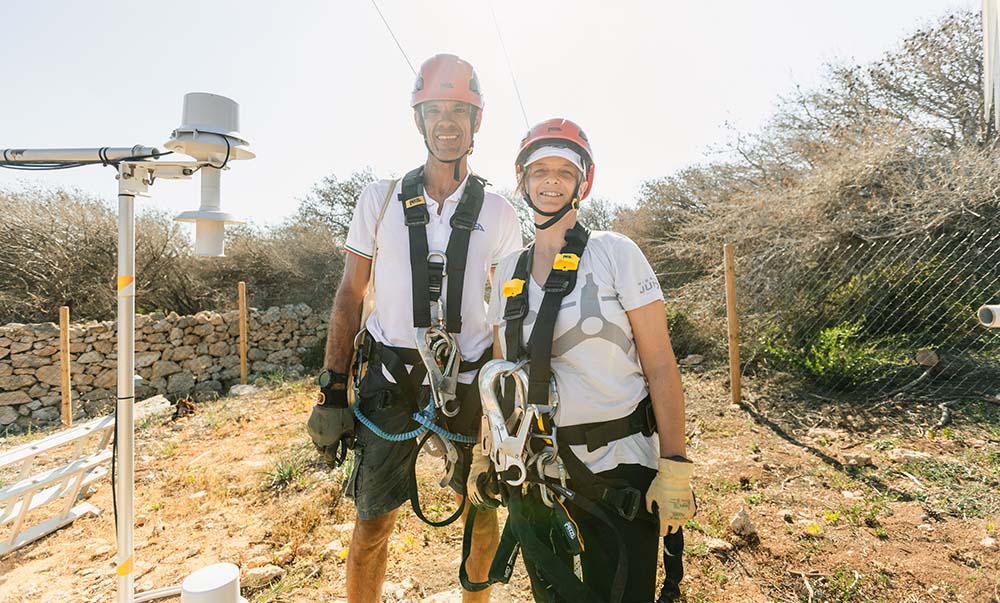
A climate hotspot
The Mediterranean is warming faster than the global average, and Lampedusa is on the front lines of this climate crisis.
“The Mediterranean is one of those regions that are called climate hotspots,” says di Sarra and continues: “It’s a place with many characteristics that make it unique. On the Mediterranean coasts there are around 400-500 million inhabitants, so there is very strong anthropic pressure. It’s a small basin and therefore, many processes are accelerated. So, it’s a particularly important point to study what’s happening in terms of climate change.”
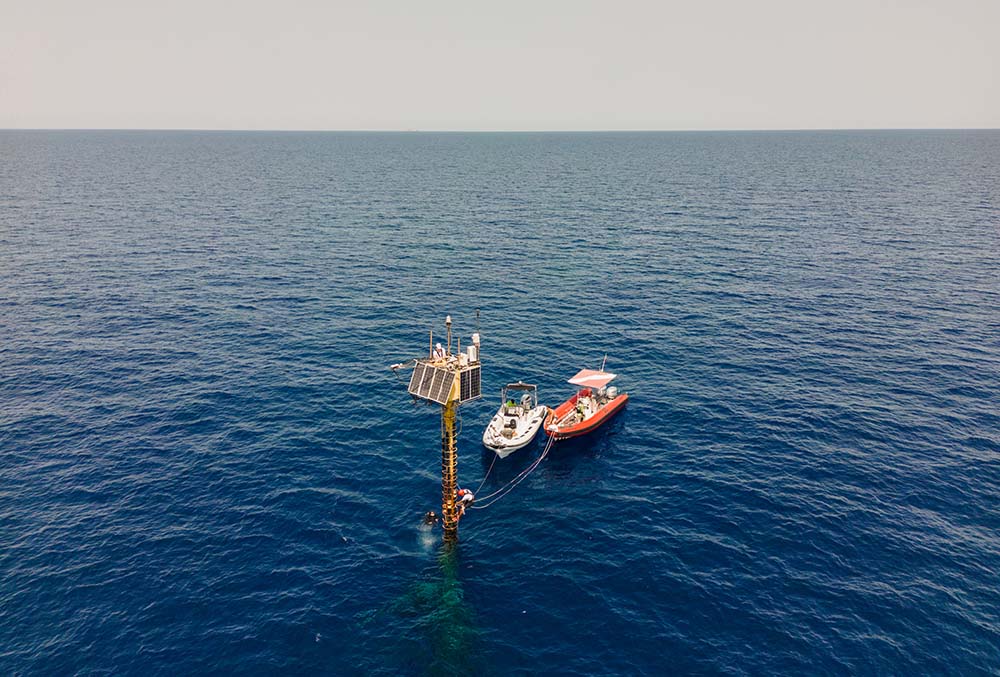
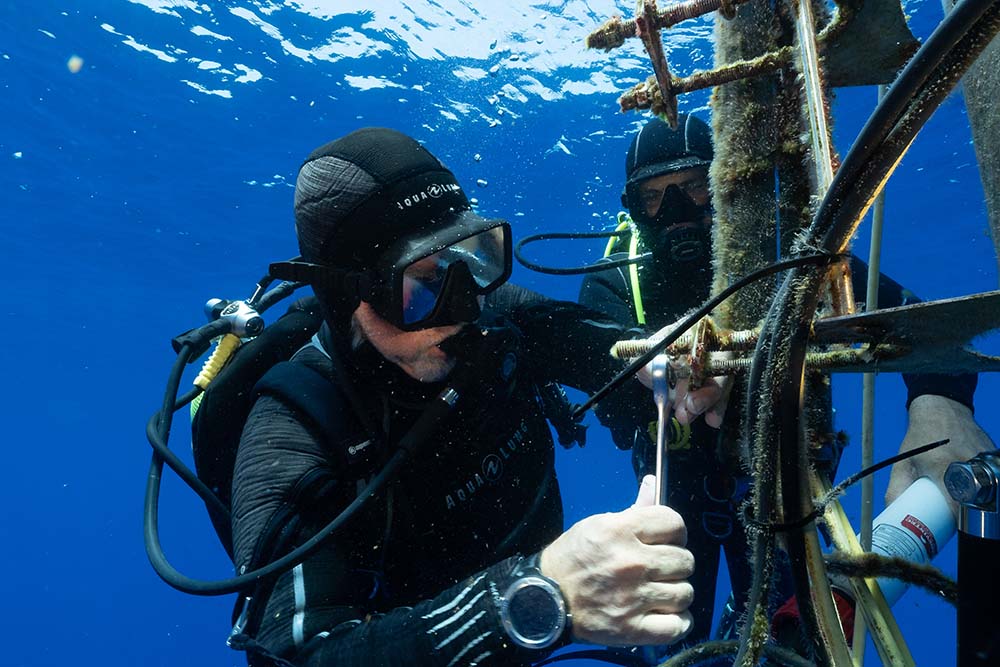
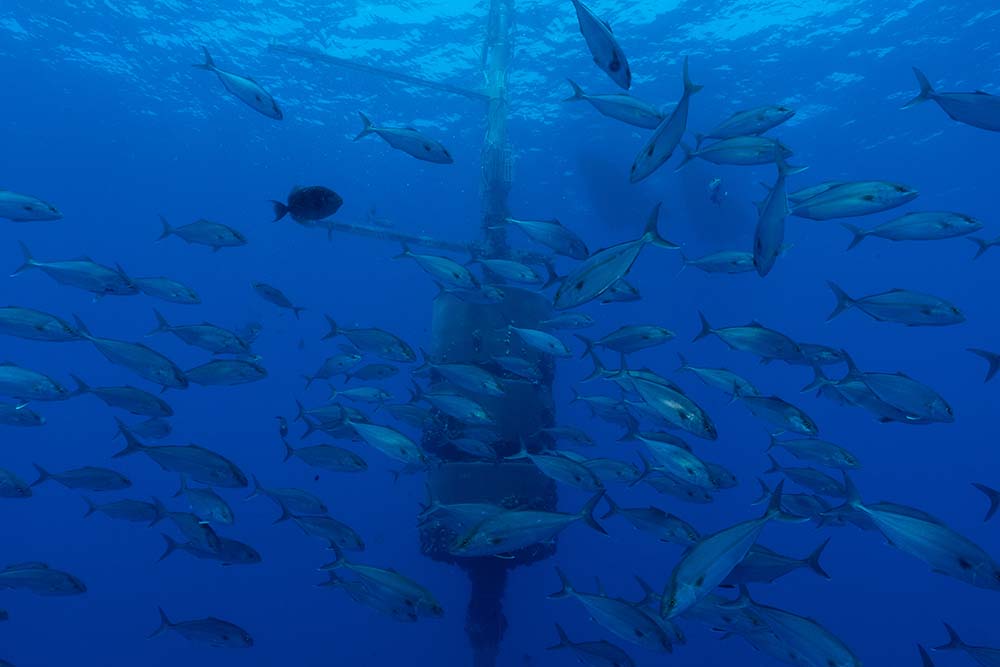
The impacts of climate change are not only environmental but also social. As di Sarra notes, Lampedusa’s proximity to North Africa makes it a frequent destination for migrants fleeing conflict and climate-related disasters:
“Lampedusa is quite close to the Tunisian coast and relatively close to the Libyan coast, so it is often the first place of arrival for many people fleeing difficult situations throughout Africa, mainly from North Africa. Many of the reasons that push these people to migrate are linked to various political aspects of economic instability, but they are also linked to processes of degradation of living conditions related to the climate. Here we see the effects of these people driven away by difficult situations trying to find better conditions.”
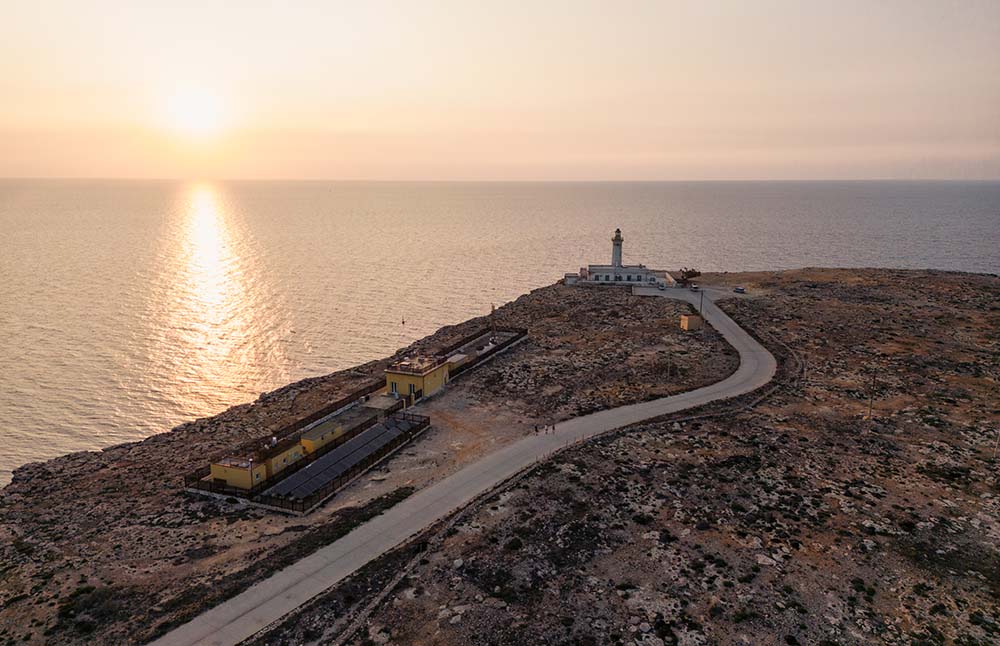
Meanwhile, the observatory’s scientists are monitoring the alarming rise in greenhouse gas concentrations.
“Since starting working here in the laboratory, I have seen the amount of CO2 increasing more than 2 ppm every year.This is worrying because I have never saw a stabilisation of these concentrations,” says Dr Damiano Sferlazzo, Principal Investigator at the Lampedusa Observatory.
“We are in what is called a growth ramp that continues year after year and unfortunately these are irrefutable data.”
As climate change continues to accelerate, the role of Lampedusa and its dedicated scientists will become even more crucial in understanding and addressing the challenges facing our planet.
The Lampedusa Observatory, a state-of-the-art research facility operated by the Italian National Agency for New Technologies, Energy and Sustainable Economic Development (ENEA), is at the forefront of climate research.
Text: Charlotta Henry, ICOS
Photos: Pekka Pelkonen, ICOS RI